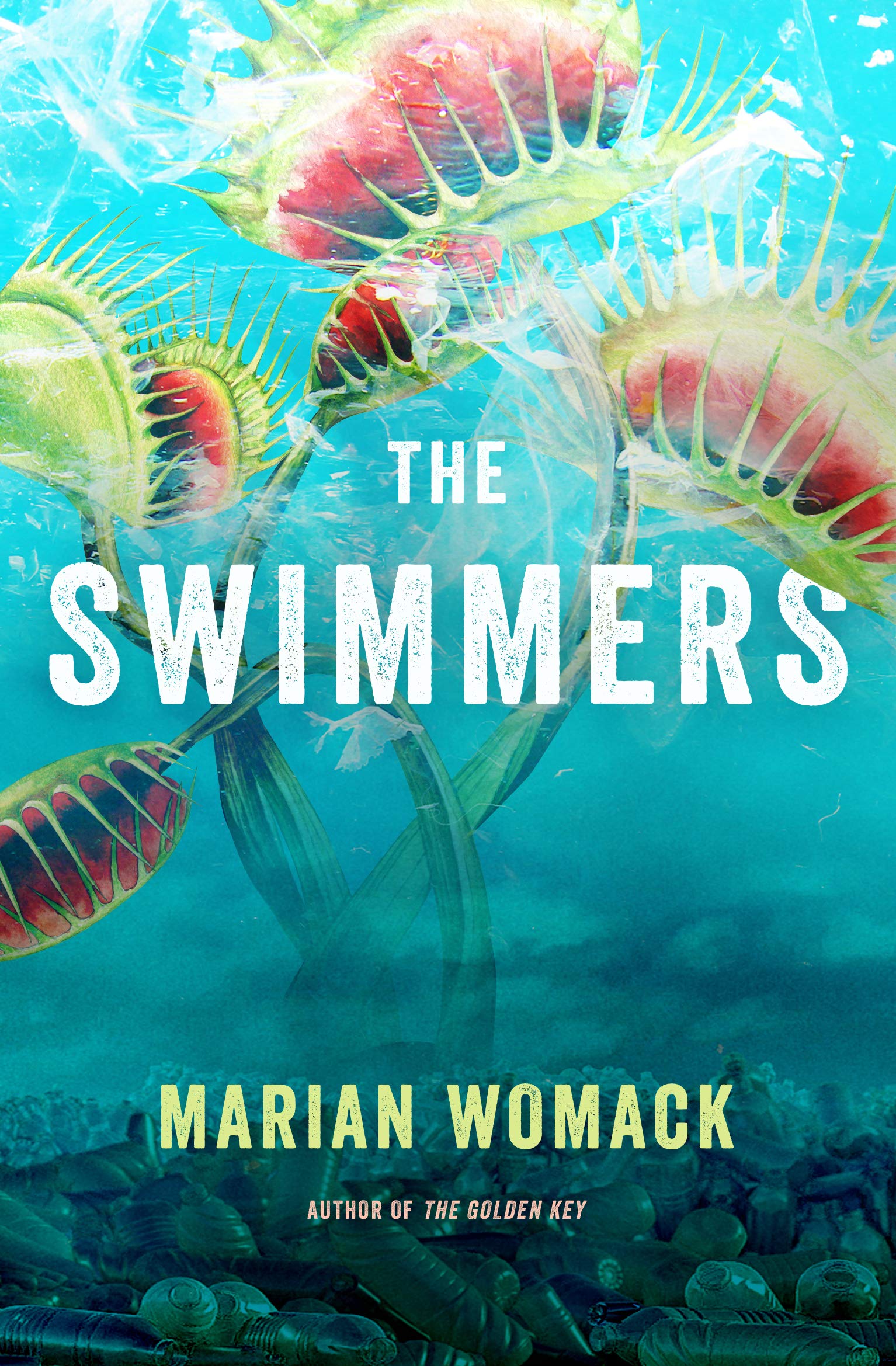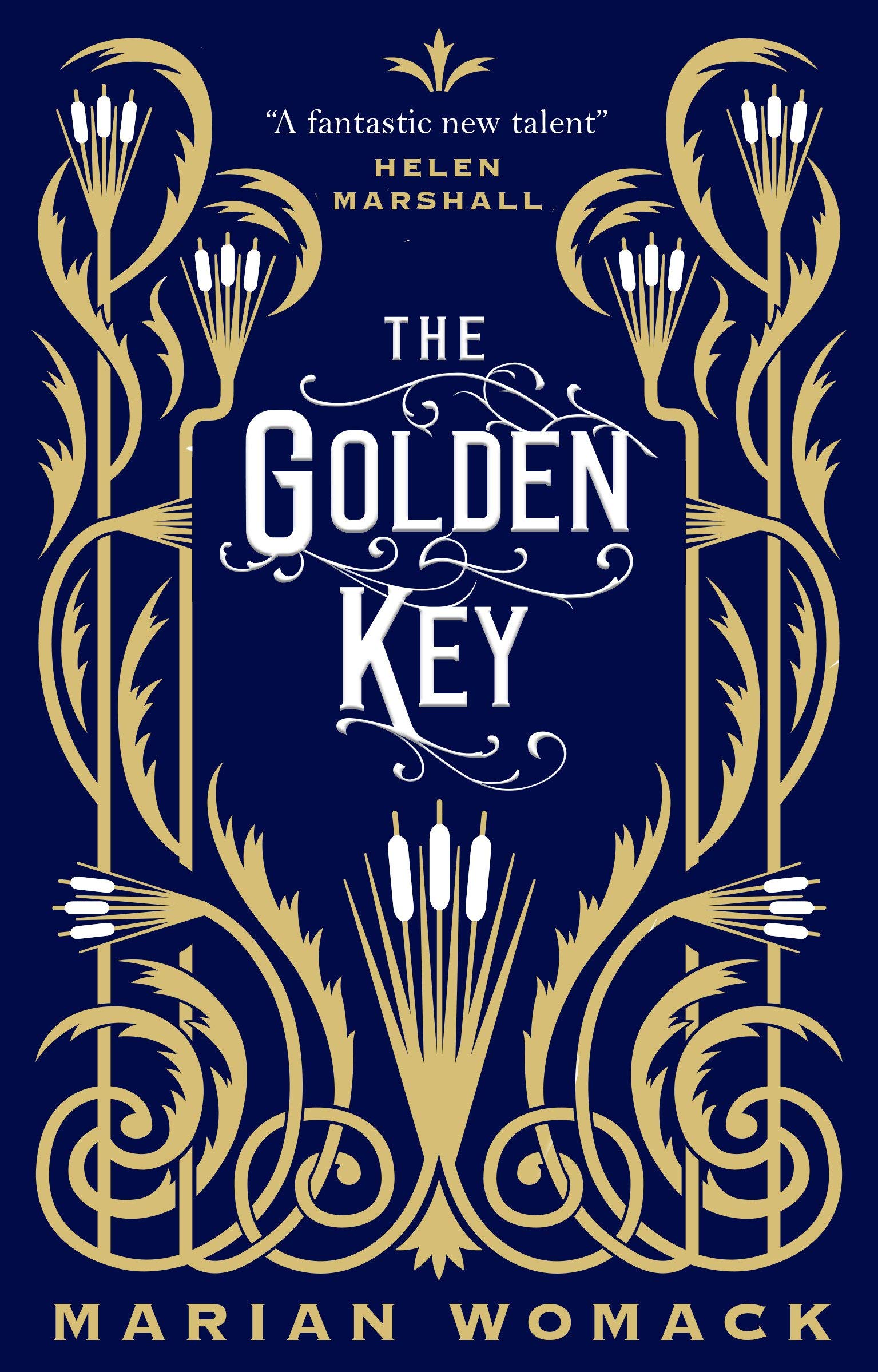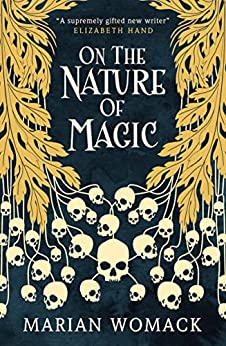How To Write When You Can’t Write: GUEST POST by Marian Womack
Today, we’re thrilled to welcome back Marian Womack to the Hive.
We’re very grateful to be able to share an essay Marian has written on being a writer living with fibromyalgia.
Marian Womack is a bilingual writer of Gothic, Weird and Science Fiction. Her writing features strange landscapes, ghostly encounters and uncanny transformations. She has published the Andalusia-set novel The Swimmers (2021), selected as one of the best ten SF books of 2021 by The Sunday Times. She is also the author of the Walton & Waltraud uncanny mystery series, which includes The Golden Key (2020), On the Nature of Magic (2023), and the forthcoming Casting the Ruins (2024). Her short fiction has been collected in Lost Objects (2018), nominated to two British Fantasy Awards and one British Science Fiction Association Award, and in the forthcoming Out Through The Window, Into The Dark. She lives in East Anglia and works as a librarian.
How To Write When You Can’t Write
by Dr. Marian Womack
As we grow—as friends, as parents, as students, as writers—we gain some understanding of who we are and what we stand for. Our weaknesses and strengths, our successes and failures, help propel us. For a long time we exist within the realm of what is possible. We live with a sense of things to come, of opportunities that will come down the line, waiting for us to grab them. Granted, at some point age will catch up with us: we will not be able, for example, to spend a whole night writing and then just get dressed and go to our day job. But that is bound to happen later, we think, so far ahead of us there isn’t much point even considering it. And then again, that process is meant to happen to us as it happens to our peers. We’ll all be in the same boat, right? We’ll all understand each other.
I was relatively young when I had my son, 37 years old. I still thought the future was ahead of me. Six years later, I was officially diagnosed with a chronic illness. The doctor explained that having my son had probably triggered it: six years of mystery were no longer a mystery. It all matched, my fibromyalgia was a textbook case, even down to the restless leg syndrome, which I’d had since I was a child.
I thought that having a diagnosis would help centre me, that I would abandon the unmoored existence I had been forced into. When you don’t know what’s happening to you—or even why it’s happening—it’s as if your body is continuously gaslighting you. When you live with a chronic illness your body becomes a stranger. You stop understanding yourself, how much or how little you can do. Every day is a new discovery, but an insidious one, one you would rather not have known about. All that frailty you imagined years, decades ahead, turns out to have been waiting for you just around the corner. When you live with a chronic illness, the dreaded future somehow precipitates. And you are utterly alone when this happens, and no one around you understands it.
If anything, the diagnosis only managed to bring more uncertainty. I had assumed that having a diagnosis would mean having a treatment, right? Right? A miracle pill, a solution. The reality is somehow more complicated. Look for example at this comedy of errors, or Kafkaesque nightmare, depending on your mood. Early summer 2023, and I’m at cracking point. My GP refers me to a physiotherapist; the physio says ‘no’, they won’t see me, my family doctor—my GP—needs to manage my condition first. My GP, who made the referral, hasn’t managed my condition because she doesn’t know how. Well, she’s done what she can: she’s printed out some ‘information’ for me from the internet, from websites I already know by heart, about an illness I’ve officially had since 2018. No physio for me at the end of this particular yellow-brick road. Crashing into this yellow-brick wall. This is my tale, but if you live with a chronic illness, I’m sure you recognise its shape.
It’s one thing to feel you are on your own, away from your peers, your friends, even your family at times—even if they try to understand. It’s another to realise that you are on your own entirely. Even before the diagnosis, I had already spent years developing what I called ‘strategies’: they were nothing more or less than ways of living around whatever it was that was going on with me, clever tricks that allowed me, more or less, to continue participating, having as ‘normal’ an existence as possible, doing what others do. Being a friend, being a mother, being a partner, being … a writer, even. For, if I am a writer at all, I am a writer living with fibromyalgia. Let me re-write that. I live with fibromyalgia, and last time I checked what I wanted to do I wanted to be a writer. What I was working towards was building a writing career. I still write, but the rules of the game have changed. As with the majority of my writing peers, I have learnt to write around the edges of life, whether it is day-jobs, children, studies, family demands. As with the great majority of my peers who live with a chronic illness, I have another level of complication to add: I also write around the edges of illness, around the edges of pain. I write, basically, when my fibro lets me.
Forget building a writing career, for starters. I see my peers ploughing along, bravely working as hard as they possibly can, building not only careers, but earning prestige and honing their craft. I get some comfort seeing them pass me by; but I would not be honest if I didn’t admit that it also stings sometimes, to know that as I see other writers advancing I myself keep retreating, into my illness, into my pain. My life has become the business of managing: others’ expectations of me, my own ambition. My levels of energy are sadly finite. I explain it like this, the ongoing-question-of-my-personal-battery: imagine we are all born with a battery. Now imagine that this battery ran out by 2018. Since then, I’ve lived on the last flickers of charge left to me.
In any case, can I write with what is left? For I already need to spend too much of this flickering energy simply on living, on the day-to-day. Have you ever, say, experienced burn out? Now multiply it. Now multiply it again. You are probably not close yet. With fibro the most mundane things become a huge effort—ask me about my greatest foe, my laundry basket. I have nightmares about it. If I’ve spent years developing strategies (let’s say for finishing a book), now it turns out I need to develop yet more strategies (let’s say for how to look presentable when I can’t wash my hair). I have some lovely clothes. In my closet. Wearing the same clothes on rotation is now the norm, because everything else is just too much. I simply cannot waste an ounce of energy—physical energy, mental energy—on things other people may take for granted. And I am one of the lucky ones: I am still in employment, in an hourly-paid, part-time, term-time work contract—at home we call it ‘a part-time of a part-time’ role. I work in education. I dream sometimes of what I could have achieved in my field, which is a research-based, curatorial one, had I been able to really go for it. But I’ve known, for many years now, that working full-time is not an option for me. This has clipped my wings. Despite the opportunities for flexible working in our day and age, ask anyone who works part-time: are they capable of advancing within their institution? Of leaving their mark? A hard task, when your role is mostly designed as a gap-filling one. Of course, thanks to my fibro, this state of things also means my take-home pay takes a beating, as will my pension. Seriously, I prefer not to think about my pension. I keep dreaming that Netflix will come knocking, intent on buying some of my (as yet non-existent) books, and everything will be dandy, my old age saved by the bell.
The current me, I don’t recognise. I simply don’t know who she is, this mythical ‘real me’. My diary keeps referring to good days as ‘being more myself’. But when does that turn around? When am I going to see that my ‘true self’ is the fibro-one? I keep evading the question, even if all I see is its debris: time lost with my children, the impossibility of travelling to visit my home country, which has now become a huge, impossible task; working less, earning less, which impacts my family directly; and of course the writing. Don’t start me on the writing. Am I a writer? Or am I also deluding myself, pretending to be one, when writing happens when and how it does? It is surprising, strange, how much I am avoiding certainties, how little I want to know: perhaps I’ve interiorised existing in this unmoored, uncertain state for so long, that I don’t know how to live otherwise. I am but one little step removed from those who tell me to do more exercise, to eat better, as if that would change fibro—it doesn’t, or from those who are intent on the old myth: ‘fix your attitude, you will fix your fibro!’. I do try at least to be a ‘nice’ fibro-person, not to bother anyone too much about it. If you don’t live in my house, chances are you don’t know the half of it. My husband is another matter. My husband is a saint.
And what about those non-existent books? As a writer, or rather as someone who, last time she checked, was working to become one, they pain me. But there’s reality to contend with first: after the day-to-day, after my few daily hours of paid work, managing my fibromyalgia takes most of my remaining ‘free’ time, most of my emotional load, and whichever energy I have left. Fibromyalgia, and how to prevent it from screwing my day—and my family’s—occupies my thoughts, at all times. I am constantly working out in my head how I’m going to cope with this or that, how tired I am going to be afterwards. I live managing my energy levels, which, funny enough, takes energy in itself. Do I clean, work, or do something with the children? No energy for two of those, let alone three: I normally can cope with one ‘thing’ per day. How to fit writing there? There’s an extra worry: my children are little, how are they growing up around me? What are they absorbing like the tiny sponges they are? I worry, most of all, about always being tired around them, and this is the hardest thing of all: for at times they are in the same room as me, and I miss them. I wish I could kneel down to build a fort together. But last night I went to bed in a lot of pain. Then I woke up in more pain. Old pains, new pains, expected and unexpected, new and old. Anxiety, anxiety, anxiety… Getting up more tired than I went to bed. No energy for two things, right? Right? So, the eternal question, writing or something else. But choosing is impossible. I feel guilty for not writing, feel guilty for writing (as in: could I be putting this energy elsewhere?). Writing simply cannot win. And, in any case, writing itself becomes unmanageable: how to get hold of a novel, how to get into the world of the novel, the space you have to live in as you write, when you cannot remember what you’ve done last time you were at it, when your mind is an endless fog-filled cave?
But I don’t want to close this little essay on a grim note. And I set out to write about… Writing. Maybe, just maybe, it will happen. I have to will myself there, just ten times slower than I had hope. Take this essay, for example: my first discussions about doing it are from last July. I’ve finished it at the end of January. My lovely editor’s patience has made it possible, and I am thankful. The demands of the world may be passing me by, but there are still spaces of understanding, also within the writing world, especially within the writing, or any creative, world. And we all need spaces of understanding, I know I’m thankful for their existence.




Your determination is really inspiring. I’m currently working on draft 2 of my first novel and it’s been tough, but I have a currently undiagnosed condition causing me to suffer blackouts that has been getting more frequent and is making me terrified of returning my usual office job, but reading this underlines for me that plenty of people are dealing with more than me and still deliver (the one who has always gave courage was Sir Terry Pratchett who used technology so he could keep writing as his alzheimers progressed) and I think I’ll start tomorrows writing with some fire in my belly 🙂